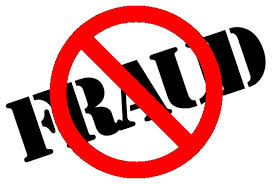记忆方法
记忆“fraud”可以采用以下方法:
1. 想象“fraud”是由“fray”和“aud”组合而成,“fray”意味着绳子或布料破损,而“aud”可以联想到“audience”(观众),整个词组合起来可以形象地想象成一场观众看穿了的欺骗表演,即欺诈行为。
1. 想象“fraud”是由“fray”和“aud”组合而成,“fray”意味着绳子或布料破损,而“aud”可以联想到“audience”(观众),整个词组合起来可以形象地想象成一场观众看穿了的欺骗表演,即欺诈行为。
以上内容由AI生成, 仅供参考和借鉴
中文词源
fraud 欺诈,欺骗
来自拉丁语fraus, 欺骗,伤害,来自PIE*dhreugh, 欺骗,伤害,来自PIE*der的扩大格,撕开,剥皮,词源同tear, dermis.
英语词源
- fraud
-
fraud: see frustrate
- fraud (n.)
- mid-14c., "criminal deception" (mid-13c. in Anglo-Latin); from Old French fraude "deception, fraud" (13c.), from Latin fraudem (nominative fraus) "a cheating, deceit," of persons "a cheater, deceiver." Not in Watkins; perhaps ultimately from PIE *dhreugh- "to deceive" (cognates: Sanskrit dhruti- "deception; error"). Meaning "a fraudulent production, something intended to deceive" is from 1650s. The meaning "impostor, deceiver, pretender; humbug" is attested from 1850. Pious fraud (1560s) is properly "deception practiced for the sake of what is deemed a good purpose;" colloquially used as "person who talks piously but is not pious at heart."
权威例句
- 1. Fraud squad officers had bugged the phone and were ready to pounce.
- 反诈骗小组的警员们已在电话上安装了窃听器,并随时准备突击。
- 2. Her assistant was accused of theft and fraud by the police.
- 她的助手被警方指控犯有盗窃和欺诈罪。
- 3. No one article can ever do justice to the topic of fraud.
- 没有哪一篇文章能把欺诈这一话题讲得恰到好处。
- 4. There was even talk that charges of fraud would be brought.
- 甚至有传闻说会以诈骗罪起诉。
- 5. He's probably going to finish up in jail for business fraud.
- 他最后很可能会因为商业诈骗而入狱。
